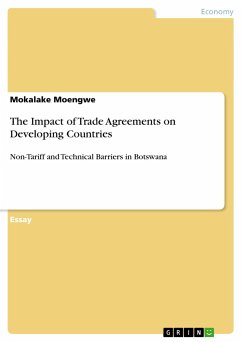If we reform the granting of patent terms from a fixed twenty year life period to a flexible and adjustable term determined through an assessment of health and economic conditions that exist during any given time period, we will improve both global equity in access to medicines and reduce economic inefficiencies in our current model for pharmaceutical R&D, while maintaining adequate incentives to conduct pharmaceutical R&D. The reform is somewhat similar to the use of interest rates as an economic growth and stabilization tool in monetary policy. It would require government patent offices to analyze global conditions in pharmaceutical access and R&D, and accordingly adjust the number of years of patent protection awarded. This novel contribution to the academic literature informs decision makers on how to design appropriate innovation policy for the benefit of public health.
Bitte wählen Sie Ihr Anliegen aus.
Rechnungen
Retourenschein anfordern
Bestellstatus
Storno








